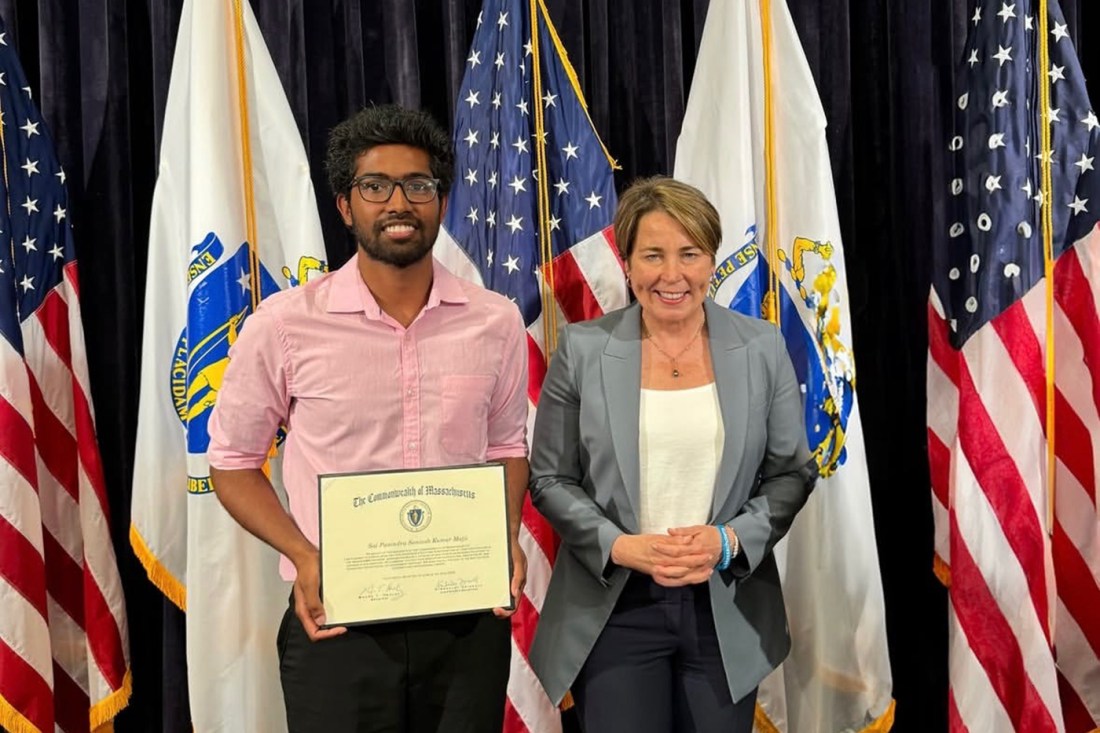AI assistant built by Northeastern grad helps MassDOT engineers work faster

Amid a wave of retirements and heavy workloads, who can the new engineers who design Massachusetts’ highway network go to for advice?
Thanks to Northeastern University graduate Sai Panindra Santosh Kumar Majji, the answer is a generative artificial intelligence assistant nicknamed HEKA.
“Heka is also the name of the Egyptian god of knowledge — he devours all the knowledge and spreads it,” Majji says. “So it kinda makes sense.”

The Highway Engineer Knowledge Assistant (HEKA) is one of the first AI tools the state has rolled out as a result of the AI for Impact program, a collaboration between Northeastern and the state of Massachusetts that places co-ops with state agencies to work on AI projects.
Majji was a student in the first cohort of the program in spring 2024, working with the state Department of Transportation, known as MassDOT, and its highway division to help find a better way to onboard new hires.
“The problem is there is so much documentation,” says Anu Goutham, deputy chief information officer at MassDOT. “Depending on where the engineer is hired into — whether it’s the bridge division, maintenance division, construction division, safety division, etc. — they’ve got to get up to speed in terms of the baseline processes and standard operating procedures, the specifications and more.”
The documents had been digitized in recent years. But the sheer number of documents, the amount of information they contained, and the amount of information that each engineering project entailed made an AI assistant valuable.

“We realized that if we can use AI so that we can provide engineers answers to all their questions quickly, help them with finding documents and finding the correct project requirements and everything, that would be really helpful,” Majji says.
So, Majji developed a prototype with ChatGPT by scanning a few documents. He solicited and incorporated feedback from engineers and other stakeholders at MassDOT and continued developing the AI assistant through the end of his co-op in May, which culminated with several presentations before MassDOT officials, state Technology Secretary Jason Snyder and Massachusetts Gov. Maura Healey.
Editor’s Picks
They were impressed, contracting with Majji to develop what would become HEKA.
After extensive testing and bringing on more and more users, HEKA went live in November.
It has proven successful.
Engineers using the tool worked 78% faster compared with doing manual research, Majji says. In addition to answering questions, helping code and drafting correspondence, the assistant enables engineers to query a checklist of requirements for, say, a bridge project or a road project in a particular municipality, Majji says.
The experience taught Majji — who previously worked in tech and consulting — a lot about government.
“I really got to understand how government works and how tech can help the public,” Majji says.
In fact, it has changed his career trajectory — he now works at a company specializing in “Gov-tech.”
“When you see real public impact, I really thought ‘OK, I was missing out on a huge sector,’” Majji says. “I was just focusing on tech companies, but there is real problem-solving here that’s happening.”










